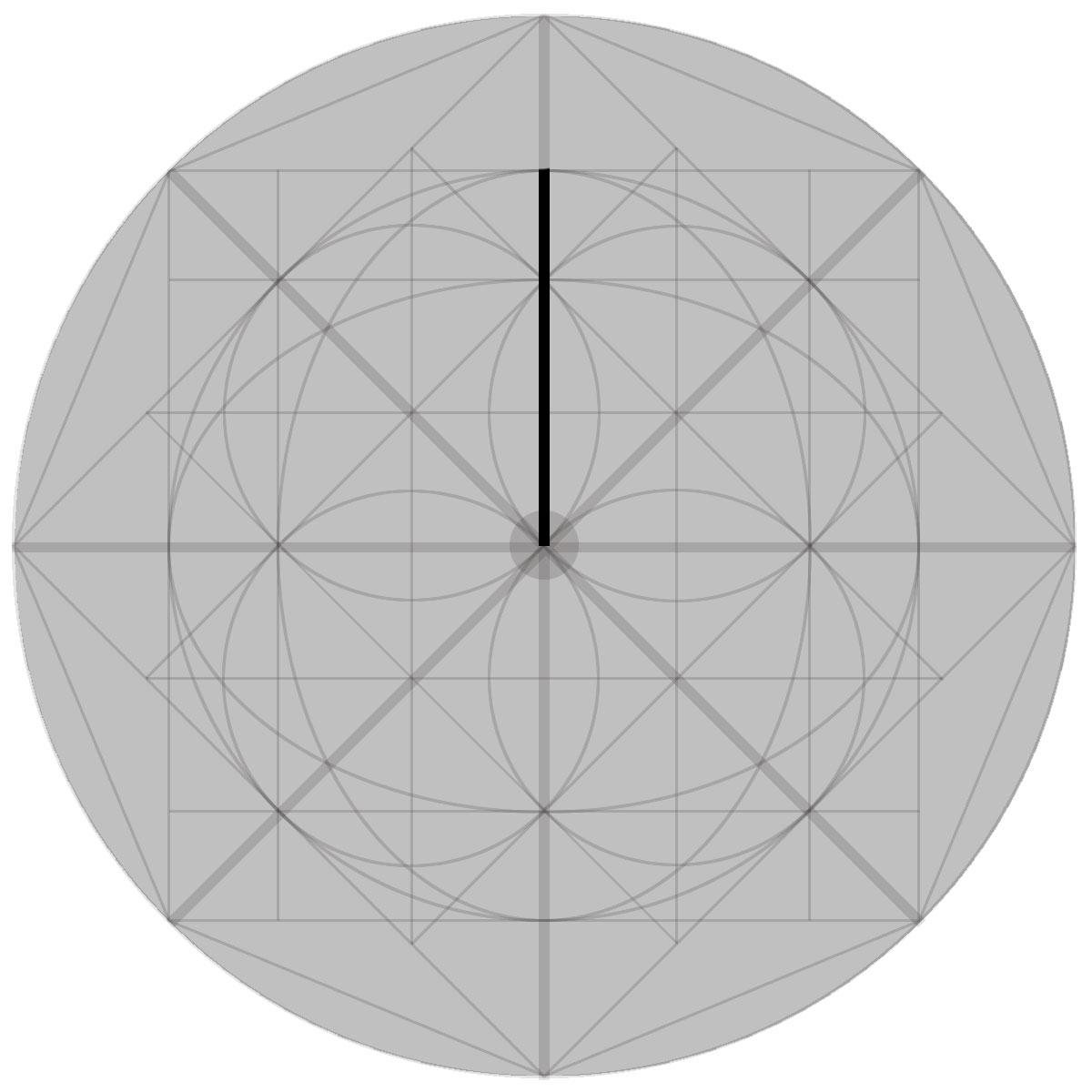
The inward block sequence is as follows:
| 1) | step forward into a right neutral bow while delivering a hammering, right, inward block to the front while drawing the left hand to a left chambered position, in a fist, at the your left side |
| 2) | slightly settle into stance with the execution of a right, hammering outward hand-sword to the front at neck level |
| 3) | continue the previous motion of your right hand until it draws to your right side, palm-up and in a fist, while simultaneously rotating to your right into a right forward bow with a left, thrusting, horizontal, four finger poke at eye level |
| 4) | rotate to your left, returning to a right neutral bow with a right, forward, thrusting, vertical, four finger spear hand at rib level, while simultaneously retracting your left hand into a left chambered position, hand open and palm up |
| 5) | step through forward into a left neutral bow, repeating the above steps on the opposite side (toward 12:00H) |
The obvious information derived from this sequence is:
•it only advances
•it utilizes the neutral bow stance and the forward bow stance
•it utilizes both the front and rear hand
•it shows both closed and open hands
•it does not have positional covers - like Short Form Two
•all blocks are executed with closed hands
•all strikes are executed with open hands
•strikes are executed to different height zones
•non-used hands are sometimes left open
•there is no cover or transition between the first and second sequence execution
•it demonstrates both sides of the sequence (opposites)
Analyzing this sequence further exposes the following information:
•it uses the power principle of torque and back-up mass
•it introduces both the horizontal and vertical, four finger poke
•the rotation of stances shows both the same and reverse direction of rotation in Long Form One
•the foot maneuver sets one of the major themes of the form - reverse direction of both Short / Long Form One
Inward Block Specific Information
The obvious information derived from the Inward Blocks is:
•it is defensive
•it is executed using linear path of travel (horizontally)
•the blocking maneuver (upper body) is executed exactly the same as in Short / Long Form One, not Short Form Two (covering hand)
•the foot maneuver (lower body) is executed exactly the same as Short Form Two, not Short / Long Form One
Right / Left Inward Block Specific Information
The obvious information derived from the two Inward Blocks is:
•the first block (right) uses the hammering Method of Execution
•the second block (left) used the thrusting Method of Execution
Hand-sword Specific Information
The obvious information derived from the Hand-swords is:
•it is offensive
•it is executed using the same arm as the block
•it is executed to mid-range extension
•it uses a hammering Method of Execution
•it is execute using circular path of travel (diagonally)
•it does not stop at potential point of contact
Analyzing this maneuver further exposes the following information:
•it demonstrates an offense with the front hand (opposite of Long Form One)
•offense is the opposite of defense
•the hand-sword (open hand) is an opposite of the punch (closed hand)
Horizontal, Four-Finger Poke Specific Information
The obvious information derived from the Horizontal, Four-Finger Poke is:
•it is offensive
•it is executed using the opposite hand of the previous strike (hand-sword)
•it (hand rotation) is executed on a horizontal plane
•it is executed open handed
•it is executed to long range
•it uses a thrusting Method of Execution
•it is executed using linear line of travel (diagonally)
•it is executed with a Forward Bow rotation
•it is similar to the punch of Long Form One, but with an open hand and to a different height zone
Analyzing this maneuver further exposes the following information:
•it (stance rotation) is in the reverse direction of the block (stance rotation)
•the poke (open hand) is an opposite of the punch (closed hand)
•the poke introduces a new point of contact for a strike (tips of fingers)
Vertical, Four-Finger Poke Specific Information
The obvious information derived from the Vertical, Four-Finger Poke is:
•it is offensive
•it is executed using the opposite hand of the previous strike (poke)
•it (hand rotation) is executed on a vertical plane
•it is open handed
•it is executed to short range
•it uses a thrusting Method of Execution
•it is executed using linear line of travel (horizontally)
•it is executed with a Neutral Bow rotation
Analyzing this maneuver further exposes the following information:
•the poke (open hand) is an opposite of the punch (closed hand)
•this poke is to a different plane and height zone of the previous strike (poke)
•this rotation is in the reverse direction of the previous rotation (and Long Form One)